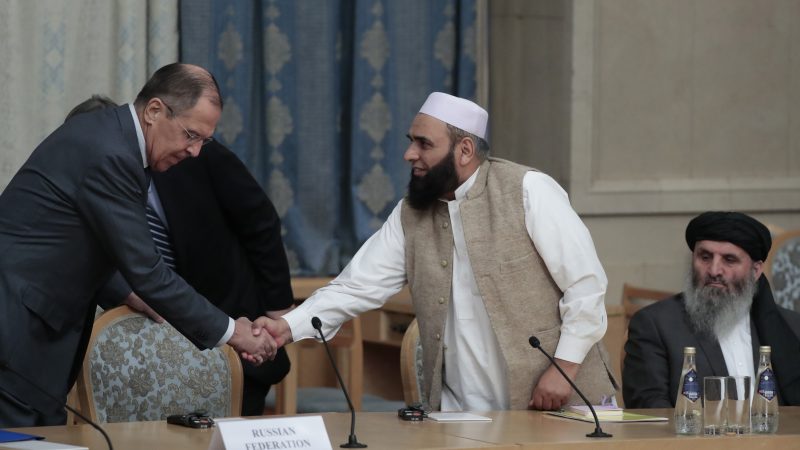
The History between the two countries goes a long way, since 1955 Moscow had provided military training and warfare material to Afghanistan and supported the PDPA, the at-the-time recently government installed upon Marxist ideology, which then split and whose more radical faction decided to improve relations with the U.S rather than following the soviet influence, these happenings eventually led to an attempt from URSS to subvert the Afghani leader prompting the Carter administration to support Afghan Islamic insurgents, the mujahedeen, who would have helped against the soviet threat.
Once again the tumult of internal Afghan politics, complicated by both the U.S. and Soviet jockeying, resulted in the event that marked the Afghan-Soviet relationship: the brutal Russian invasion of Afghanistan in 1978, this was the start of a decade-long attempt by Moscow to install a socialist-friendly government on its borders as per the teaching of the Brezhnev Doctrine, it was a ground-breaking event during the Cold War, being the first and only time that the URSS invaded a country outside the Eastern Bloc, a choice that earned the Soviet Union worldwide condemnation.
As a matter of fact, during the occupation, the Soviets left a shattered country in which the Taliban, an Islamic fundamentalist group, prospered, later providing Osama bin Laden with a training base from which he launched terrorist operations worldwide.
What happened in the last decades between the two parties gives us a better understanding of the modern-day dynamics of Russian interests in Afghanistan, they date back to the 19th century when the soviet aim was to counter-attack the expansionism of British imperialism in the area as well as to fight the U.S and NATO presence in the country while at the same time gaining access to the Indian Ocean, Afghanistan may be the only territory where the two superpowers of the Cold War can actually find common ground, after all, they both fear the consequences of an attack coming from rascal militant groups originating and operating from that area since Russia has perceived the main threats emanating from Afghanistan to be the potential for the export of radical ideology, terrorism and narcotics; certainly, Russia sees Afghanistan as an opportunity to reinforce its influence in the middle east according to its renewed foreign policy strategy which seems to be more open and involved in global affairs than ever before always making sure though, that no outside entity takes over the territory.
Furthermore, Russia has recently developed and maintained diplomatic ties with the Talibans assuming that they will play a huge role in the country in the following years, the same goes for Tajikistan, Kyrgyzstan, and Kazakhstan which are to this day soviet’s allies thanks to the carefully orchestrated Russian foreign policy, in addition, keeping Afghanistan neutral means that it cannot be used as leverage by other countries, especially the United States of America, it should be noted that Russian resources in Afghanistan are quite limited as there are no reliable borders or geographical barriers between Afghanistan and Russian territory that could ultimately stop infiltration of military groups into soviet territory, in spite of this, Moscow does have opportunities to influence regional security.
In conclusion, since 1989, Russia’s Afghan policy has seen several changes, first, the goal was to stabilize the area, second, to use the Afghanistan peace process in its current confrontation with the West, and finally, Moscow considers its participation in the peace settlement as a confirmation of its return to the world’s global-power competition.
For the previously mentioned reasons, Russia has called on the Taliban to form a government that includes all ethnic groups and political forces in Afghanistan, as the group attended a round of talks in Moscow, in doing this the soviet foreign Minister Sergey Lavrov stated during a conference that the Kremlin recognises the Taliban’s “efforts” to try and stabilise the situation in Afghanistan since taking power in mid-August, while these words are still pretty much far away from an official recognitions they hint that things may change if the Taliban govern fulfils its promises to the world.
Regional powers back aid for Afghanistan say U.S and allies should pay, available at:
Regional powers back aid for Afghanistan as Russia hosts Taliban, available at:
Allies should pay, available at:
the soviet invasion of Afghanistan and the U.S response, available at:
https://history.state.gov/milestones/1977-1980/soviet-invasion-afghanistan
Russia and Afghanistan, rewriting history, available at:
https://www.workersliberty.org/story/2021-09-07/russia-and-afghanistan-rewriting-history
Understanding Russian involvement in Afghanistan, available at:
the great Russian involvement in Afghanistan, available at:
What’s Russia’s strategy in Afghanistan? available at:
https://www.trtworld.com/opinion/what-s-russia-s-strategy-in-afghanistan-49065
What’s going on between Russia, US and Afghanistan, available at:
https://www.bbc.com/news/world-asia-53220163
How Russia views Afghanistan today, available at:
By The European Institute for International Law and International Relations.















